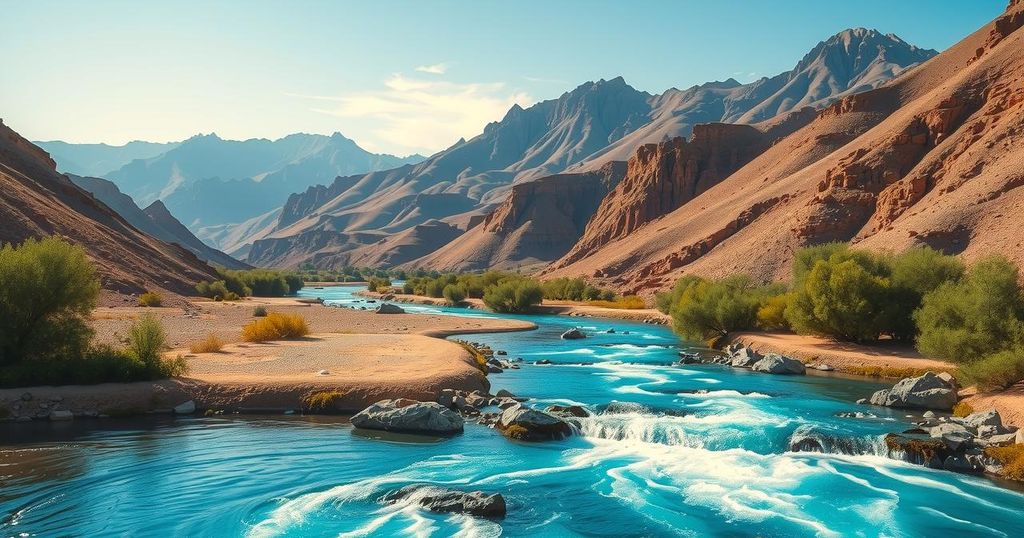Morocco is investing $728 million in a “water highway” project to supply water from the Sebou River to major cities like Rabat and Casablanca. Despite its current success in averting water shortages, experts warn about sustainability issues stemming from climate change, prolonged drought, and significant reductions in annual water supply. This dynamic necessitates innovative solutions like desalination to secure long-term water access.
Morocco is investing substantial resources, amounting to $728 million, in a project referred to as the “water highway,” which aims to channel surplus water from the Sebou River in the north to alleviate water shortages in major urban centers, including Rabat and Casablanca. This initiative will also extend to the southern city of Marrakesh in the future. Authorities assert that this project is pivotal in safeguarding the water supply of approximately 12 million people, particularly after Rabat nearly experienced water scarcity in late 2023.
The country has been plagued by profound rainfall disparities—53% of its precipitation occurs in a mere 7% of its territory, primarily in the Atlas mountain region. Historically, northern rivers have had sufficient flow to reach the ocean, even during dry seasons, but with ongoing climate challenges, this may become untenable. As part of the project, a diversion dam was established in Kenitra to capture and redirect water before it flows into the ocean, channeling it through a 67-kilometer underground canal to support local populations.
Despite early successes, experts express skepticism regarding the long-term viability of the water highway initiative due to overlapping challenges of persistent drought and rising temperatures. Annual water supply in Morocco has dramatically decreased from 18 billion cubic meters in the 1980s to approximately five billion today. The ongoing six-year drought is the most severe on record, further exacerbated by remarkably low rainfall levels.
Climate change poses a significant threat, with projections indicating that northern basins are likely to be disproportionately affected in the coming decades. Water and climate researcher Nabil El Mocayd highlights the possibility that what is currently seen as surplus may dwindle, suggesting a reconsideration of the project’s scale. Furthermore, the demand for irrigation in agriculture remains high, stressing the need for more efficient water use practices among farmers. Abderrahim Handouf posited that while the water highway is beneficial amid current alternatives, the looming climate challenges necessitate enhanced investment in desalination to sustainably meet urban drinking water needs.
In conclusion, Morocco’s “water highway” represents a crucial effort to address immediate water needs in urban areas facing acute shortages. However, due to significant concerns surrounding climate change, continued drought, and water resource sustainability, experts urge a re-evaluation of the project and call for innovations such as desalination. Addressing the growing challenges will require balancing urban and agricultural water demands to ensure the resilience of the country’s water supply system.
Original Source: www.swiowanewssource.com






